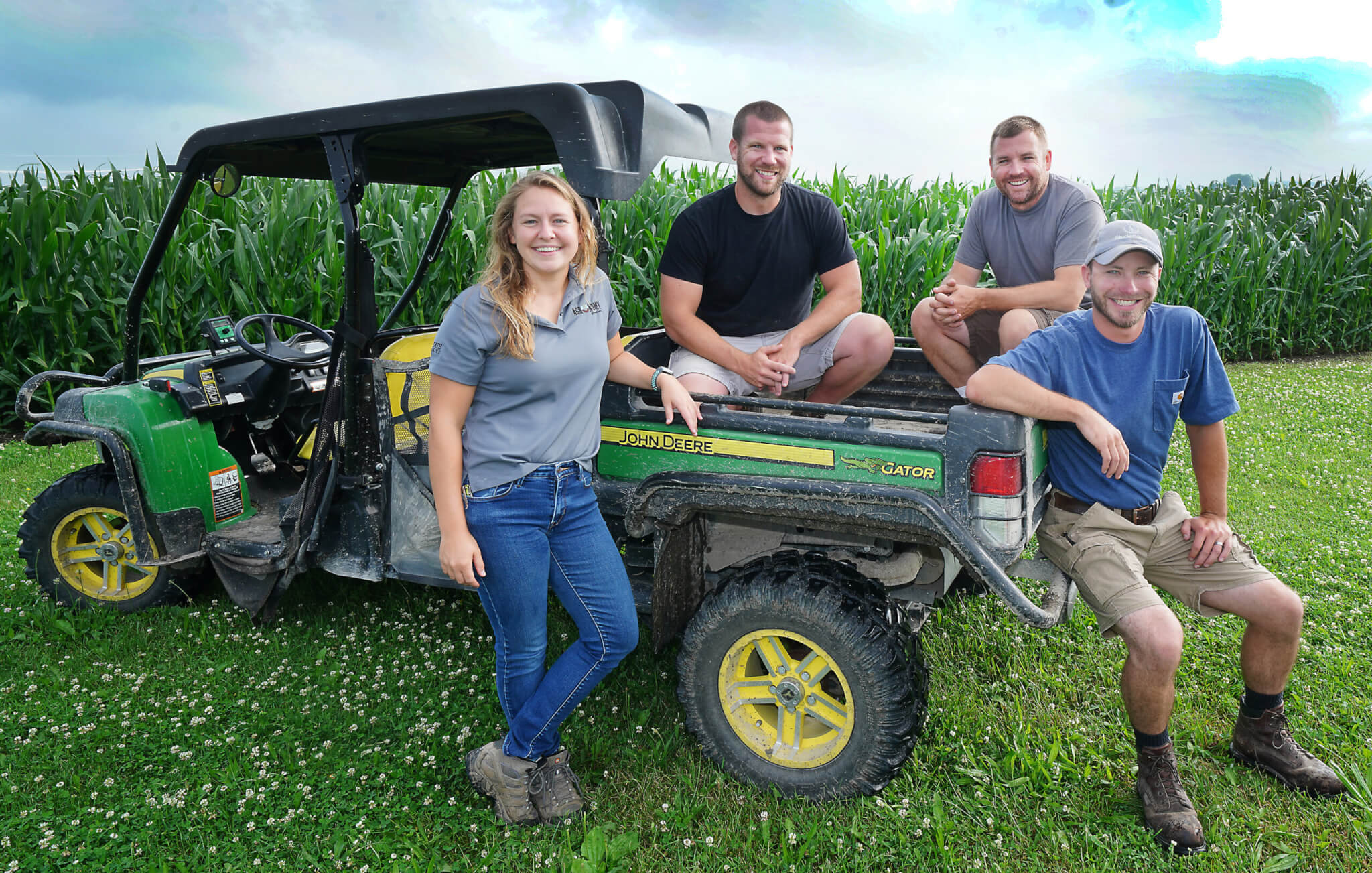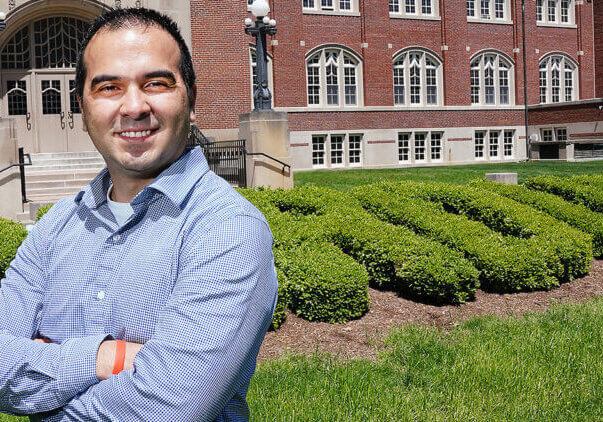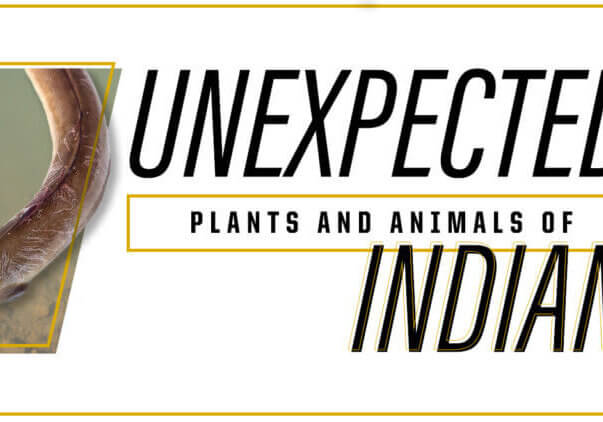E
stablished in 1949 as Purdue’s campus-based field research station for agronomic crops and soils research, the Agronomy Center for Research and Education (ACRE) is home to innovative researchers, passionate students and now the center’s third farm manager.
Rachel Stevens began overseeing the 1,600-acre farm at the beginning of April. She’s responsible for the planning and placement of crops, adoption of good management practices and the day-to-day support to ensure researchers and students have the right tools to be successful.

“I’m excited to step into ACRE as the third farm manager and see what I can bring to the table. ACRE has a great foundation of agronomic research and an incredible staff of research technicians, Bryan, Aaron, and Evan, that I am lucky to work with every day. I’ve enjoyed seeing the variety of research conducted at the farm and meeting the faculty, staff and student researchers,” said Stevens.
Stevens grew up on a farm in the southeast corner of Nebraska. She attended the University of Nebraska, earning an undergraduate degree in agronomy and master’s in mechanized systems management with an emphasis in precision agriculture. After graduate school, Stevens worked as a crop consultant and assisted with digital marketing. She proceeded to work part-time for a professor in the Purdue Agronomy department while also managing a consulting firm specializing in web development and marketing materials for small agriculture businesses.
“I believe that Rachel is the ideal farm manager to lead ACRE’s next chapter of growth and success. The search committee was impressed by her strong background in digital agriculture, innovative ideas and her ability to work in a highly functional team-driven setting. Her drive and determination are already paying dividends for our operations,” said Ron Turco, department head of Purdue Agronomy.
As digital agriculture and agriculture technology continue to change the industry, Stevens is eager for new technology-based research projects on the farm. One of her highest prioritized goals is to keep better track of the farm’s data, compile the data into a more usable format for researchers and leverage it for practical farm management decisions.
Stevens also hopes to make the farm more accessible and applicable to those outside of research projects, including students and Indiana farmers. From launching a summer internship program to hosting Purdue Extension events, she’s excited to undertake new projects that will ensure ACRE stays relevant in the agriculture space.
“Aside from the novel research occurring, I want farmers to know what we are doing on the farm adds value to them as growers. We want to address the research questions that are important to farmers in Indiana and the Midwest as well as food security around the world,” said Stevens.
“Digital agriculture and how we harness data to make sustainable decisions and be better stewards of our resources are going to be extremely important as we move forward.”
Student’s research explores maritime shipping of agricultural commodities
When a ship ran aground and blocked the Suez Canal for six days in March, stranding more than 400 ships at one of the world’s busiest waterways, Manuel Jimenez stayed attuned to its impact.
Jimenez’s research at Purdue focuses on maritime shipping and international trade. The topics reflect his upbringing in Bogotá, Colombia, where his father operated a firm that exported flowers to the United States.
Read Full Story >>>Unexpected Plants and Animals of Indiana: American Eel
The lives of Indiana’s American eels start and usually end more than 1,000 miles away in the saltwater of the Atlantic Ocean. The eels may journey as far north as Iceland or as far south as Venezuela. With such a wide variety of habitats, an American eel rarely feels like a fish out of water. Even when they are traveling out of the water.
Read Full Story >>>Student’s research explores maritime shipping of agricultural commodities
When a ship ran aground and blocked the Suez Canal for six days in March, stranding more than 400 ships at one of the world’s busiest waterways, Manuel Jimenez stayed attuned to its impact.
Jimenez’s research at Purdue focuses on maritime shipping and international trade. The topics reflect his upbringing in Bogotá, Colombia, where his father operated a firm that exported flowers to the United States.
Read Full Story >>>Unexpected Plants and Animals of Indiana: American Eel
The lives of Indiana’s American eels start and usually end more than 1,000 miles away in the saltwater of the Atlantic Ocean. The eels may journey as far north as Iceland or as far south as Venezuela. With such a wide variety of habitats, an American eel rarely feels like a fish out of water. Even when they are traveling out of the water.
Read Full Story >>>
